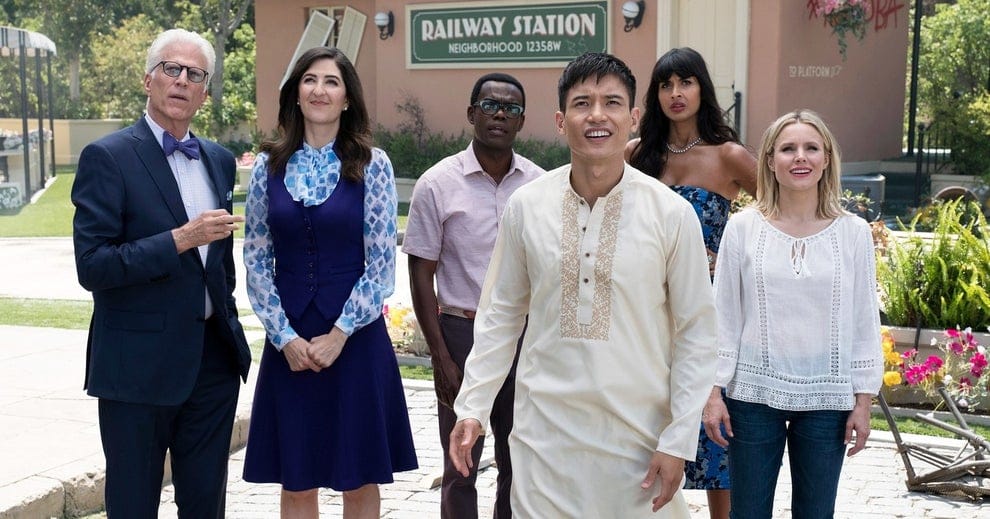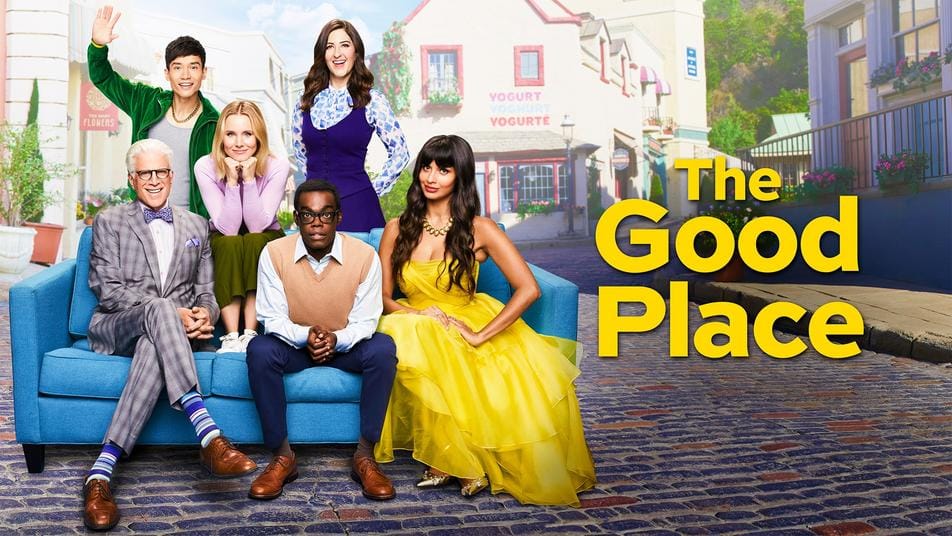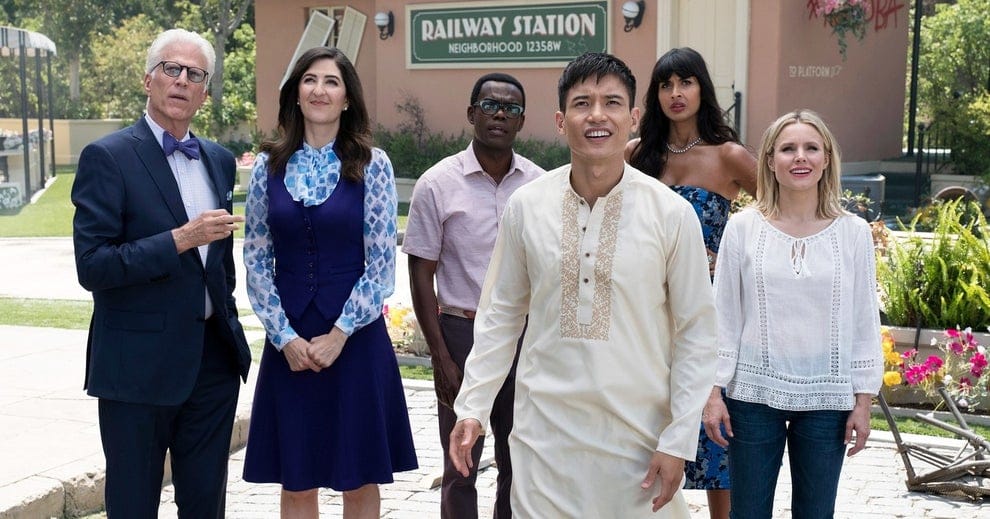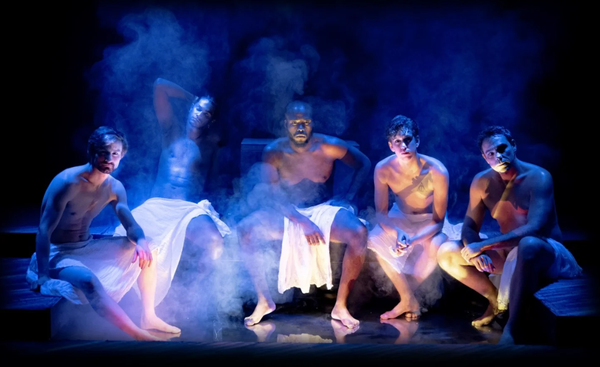Is Earth the bad place?
Lessons in being human from The Good Place

What makes a good person?
This is the central question in The Good Place, a series from Michael Schur, the mind behind some of the most endearing television comedies of the past couple of decades — Parks and Recreation and Brooklyn Nine-Nine to name a few.
The Good Place is a series with delightfully unexpected twists and turns from the first episode all the way to the last. So, I'm going to skip the usual synopsis in the hopes that you'll be intrigued to check out the show if you haven't already. That being said, The Good Place does, like many other episodic shows, fall victim to being stretched out beyond all logical means for the sake of keeping it on air.
By drawing out its brilliant original concept, the story's supernatural elements become convenient and sometimes nonsensical means of pushing the plot along. However, this didn't stop me from rewatching the series in its entirety since it first aired between 2016 and 2020. Even on a second watch, I was struck by just how human this show is.

One of the most pertinent of the show's themes speaks to the increasingly rare occurrence of straightforward decisions.
As we gain more and more access to the inner workings of commercial industries, it becomes undeniably clear that everyday decisions are often polluted by inconspicuous ethical consequences. From fast fashion brands and coffee shop franchises to AI and social media platforms, being a good person feels like an overwhelmingly futile feat.
So, where do we go from here?
Does it mean we have to fundamentally change every part of how we live in order to do what's right all of the time? Not really. So does it mean we have to give up in the face of a hopelessly devastated world? Also, no. The Good Place suggests that it all comes down to the difference between the person we are today and the person we were yesterday even when that difference is only a fraction of a percentage in the right direction.
The characters in The Good Place go against all odds (in a very literal way) to interrogate a system that evaluates human goodness on an age-old, unshifting scale. Ultimately, they find that with the right motivations and friendships, they can tap into a source of optimism that even surprises each other.
What matters isn't if people are good or bad. What matters is if they're trying to be better today than they were yesterday. You asked me where my hope comes from. That's my answer. — Michael, The Good Place

Good people aren't always perfectly good people. In fact, that wouldn't be just an unrealistic ideal but also a contradictory standard against the very nature of being human. Good people are, I think, the people who never fail to remember that goodness isn't a final destination. Rather, it's a consciousness that is in a devoted yet self-compassionate pursuit of virtuousness.
The Good Place holds the bittersweet message that life's spark lies in its finiteness. And if we only get to experience this particular form of existence once, why not give it the truest best shot we've got at making it the closest thing to good it can get?
"Every human is a little bit sad all the time because you know you're going to die. But that knowledge is what gives life meaning." — Eleanor, The Good Place
If you’ve found value, joy, or comfort in The Kulturalist, consider clicking the button below to support my work. Your generosity keeps the words flowing. Thank you for being here!





